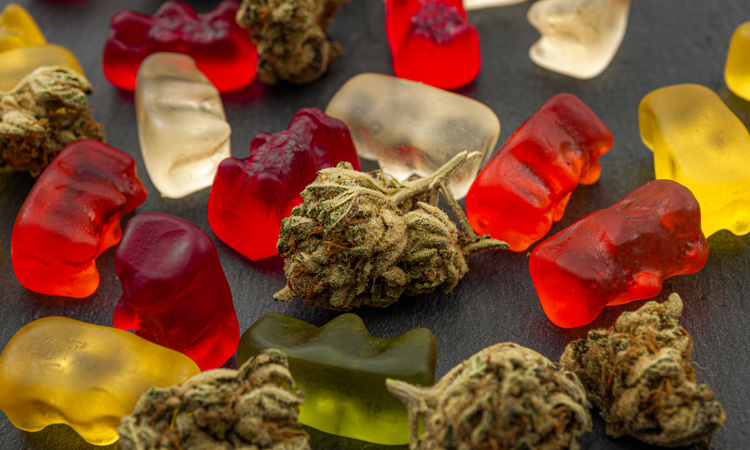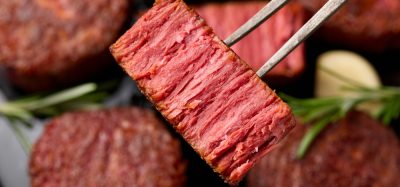FDA warns companies for illegally selling CBD products
- Like
- Digg
- Del
- Tumblr
- VKontakte
- Buffer
- Love This
- Odnoklassniki
- Meneame
- Blogger
- Amazon
- Yahoo Mail
- Gmail
- AOL
- Newsvine
- HackerNews
- Evernote
- MySpace
- Mail.ru
- Viadeo
- Line
- Comments
- Yummly
- SMS
- Viber
- Telegram
- Subscribe
- Skype
- Facebook Messenger
- Kakao
- LiveJournal
- Yammer
- Edgar
- Fintel
- Mix
- Instapaper
- Copy Link
Posted: 26 November 2019 | Sam Mehmet (New Food) | No comments yet
Based on the lack of scientific information supporting the safety of CBD in food, the FDA is also indicating that it cannot conclude that CBD is generally recognised as safe (GRAS) among qualified experts for its use in human or animal food.


The US Food and Drug Administration (FDA) has issued warning letters to 15 companies for illegally selling products containing cannabidiol (CBD) in ways that violate the Federal Food, Drug, and Cosmetic Act (FD&C Act). The FDA also published a revised Consumer Update detailing safety concerns about CBD products more broadly.
“As we work quickly to further clarify our regulatory approach for products containing cannabis and cannabis-derived compounds like CBD, we will continue to monitor the marketplace and take action as needed against companies that violate the law in ways that raise a variety of public health concerns,” said FDA Principal Deputy Commissioner Amy Abernethy, M.D., Ph.D.
“In line with our mission to protect the public, foster innovation, and promote consumer confidence, this overarching approach regarding CBD is the same as the FDA would take for any other substance that we regulate. We remain concerned that some people wrongly think that the myriad of CBD products on the market, many of which are illegal, have been evaluated by the FDA and determined to be safe, or that trying CBD ‘can’t hurt.’
“Aside from one prescription drug approved to treat two pediatric epilepsy disorders, these products have not been approved by the FDA and we want to be clear that a number of questions remain regarding CBD’s safety – including reports of products containing contaminants, such as pesticides and heavy metals – and there are real risks that need to be considered. We recognise the significant public interest in CBD and we must work together with stakeholders and industry to fill in the knowledge gaps about the science, safety and quality of many of these products.”
Some of the products outlined in the warning letters have raised other legal and public health concerns:
- Some of the products are marketed for infants and children – a vulnerable population that may be at greater risk for adverse reactions due to differences in the ability to absorb, metabolise, distribute or excrete a substance such as CBD
- Some of the products are foods to which CBD has been added. Under the FD&C Act, it is illegal to introduce into interstate commerce any human or animal food to which certain drug ingredients, such as CBD, have been added. In addition, the FDA has said it is not aware of any basis to conclude that CBD is GRAS among qualified experts for its use in human or animal food. There also is no food additive regulation which authorises the use of CBD as an ingredient in human food or animal food, and the agency is not aware of any other exemption from the food additive definition that would apply to CBD. CBD is therefore an unapproved food additive, and its use in human or animal food violates the FD&C Act for reasons that are independent of its status as a drug ingredient
- Some of the products are marketed as dietary supplements. However, CBD products cannot be dietary supplements because they do not meet the definition of a dietary supplement under the FD&C Act
- One product outlined in a warning letter is intended for food-producing animals. The agency remains concerned about the safety of human food products (e.g. meat, milk, and eggs) from animals that consume CBD, as there is a lack of data establishing safe CBD residue levels.
The FDA has requested responses from the companies within 15 working days stating how the companies will correct the violations. Failure to correct the violations promptly may result in legal action, including product seizure and/or injunction.
Details of the companies receiving warning letters can be found on the FDA website.
Related topics
CBD hemp & cannabis, Food Safety, Health & Nutrition, Regulation & Legislation, The consumer









